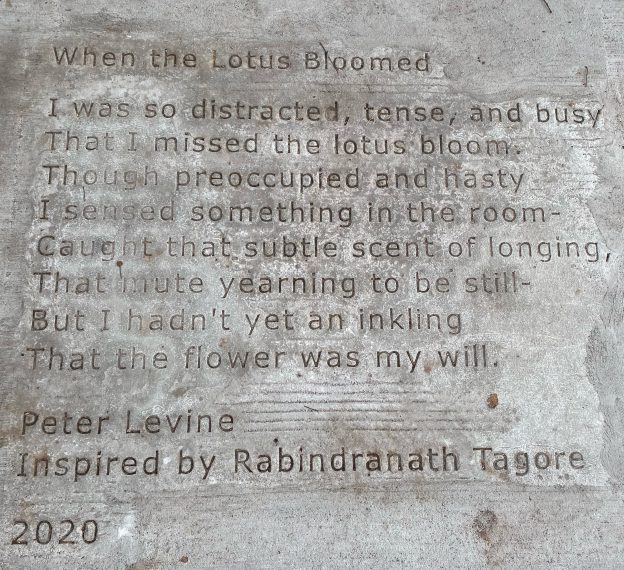- Facebook366
- Threads
- Bluesky
- Total 366
Thanks to Cambridge Arts’ Sidewalk Poetry program, this poem is now imprinted in cement at Clarendon Ave. and Massachusetts Ave. in Cambridge (Mass.). The text appeared first on my blog. I meant to answer Rabindranath Tagore’s Gitanjali #20, “On the Day When the Lotus Bloomed,” which begins—in Tagore’s own translation from Bengali—“On the day when the lotus bloomed, alas, my mind was straying, and I knew it not. My basket was empty and the flower remained unheeded.”
By the way, Tagore’s English versions of his own verse are criticized for being sentimental, archaizing, and didactic and less challenging than the originals. For instance, Amit Chaudhuri writes, “Tagore’s English version of the Gitanjali, for which he was awarded the Nobel prize in 1913, is what Mother Teresa once was to Calcutta, the royal family to England, and Kingsley to Gandhi: a tantalising mirage that obstructs the view of what’s behind it.” My response, then, must be even further from Tagore’s Bengali original, which I cannot read. But I think these eight lines convey some of me, and I hope they offer a touch of peace in North Cambridge.
